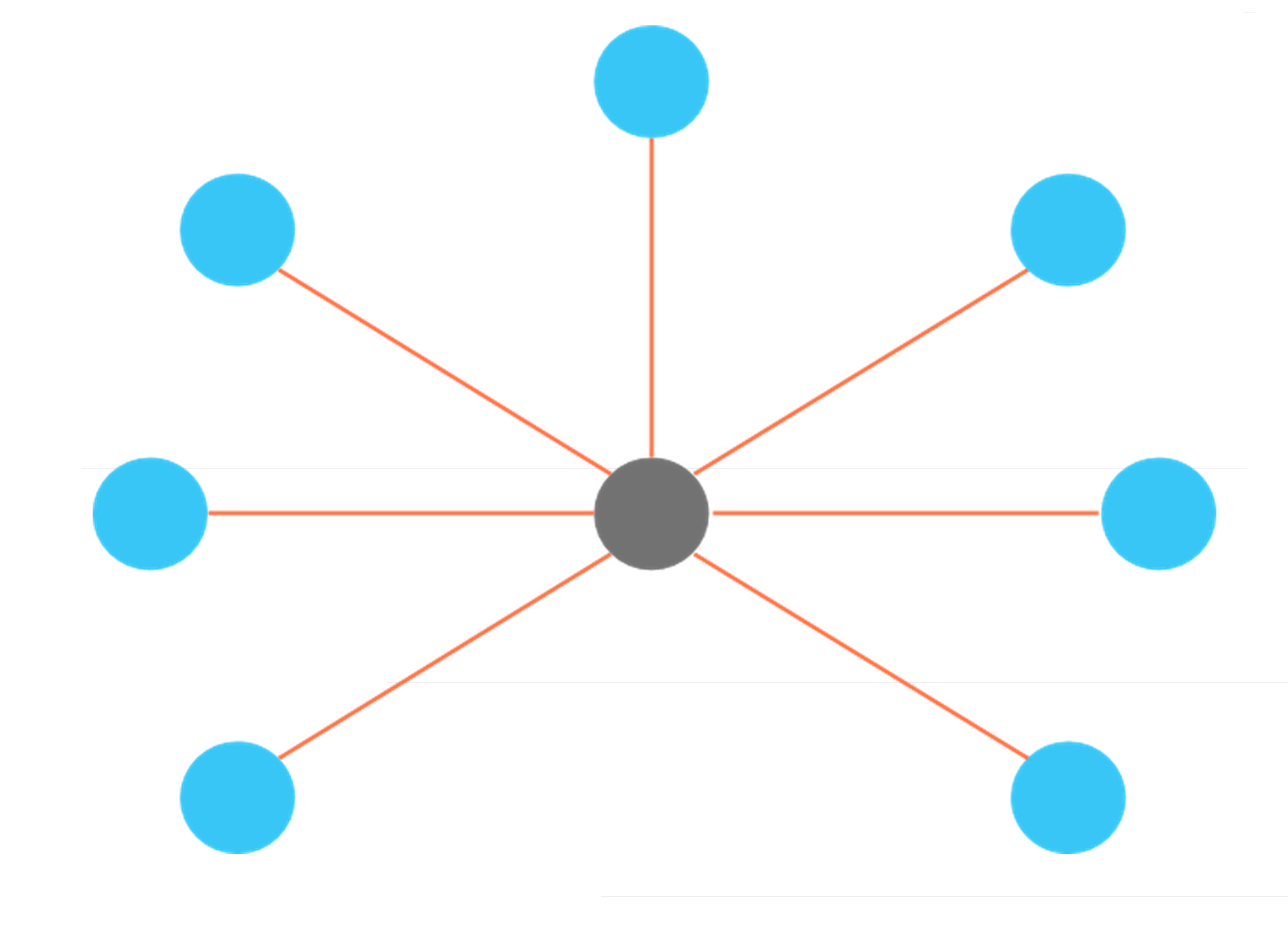Network Coverage
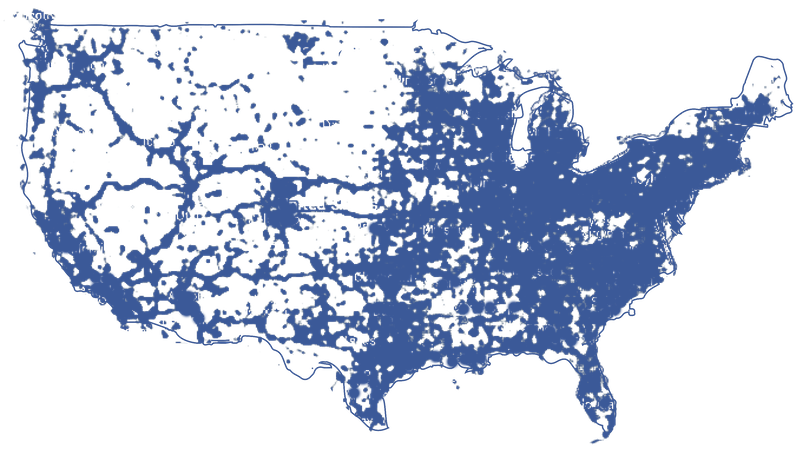

64 kbps

20 sec
per newsfeed download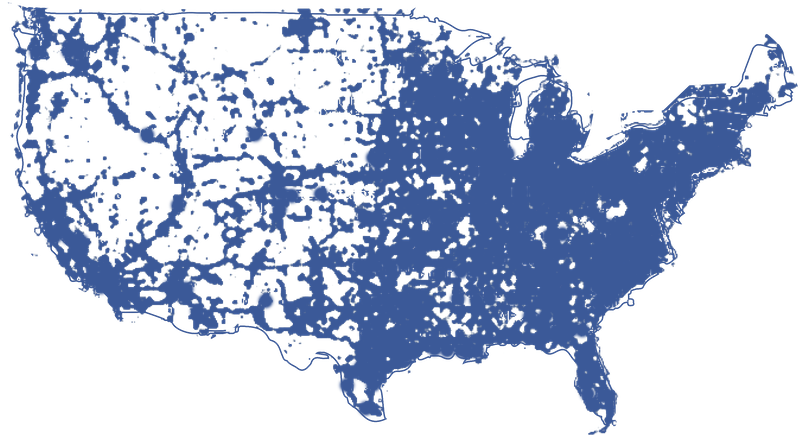
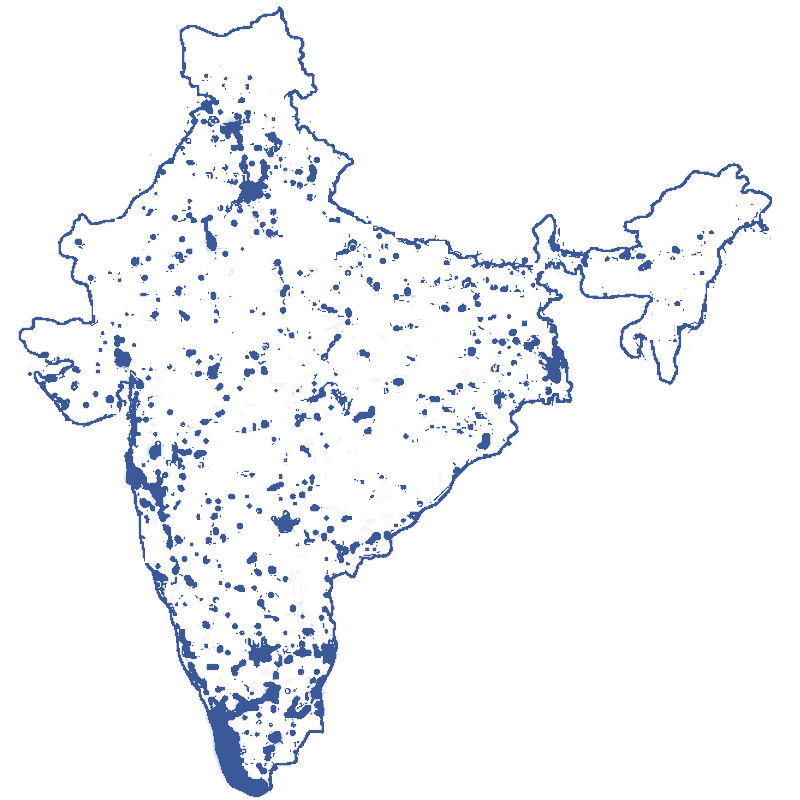
20,000 kbps

0.6 sec
per newsfeed download
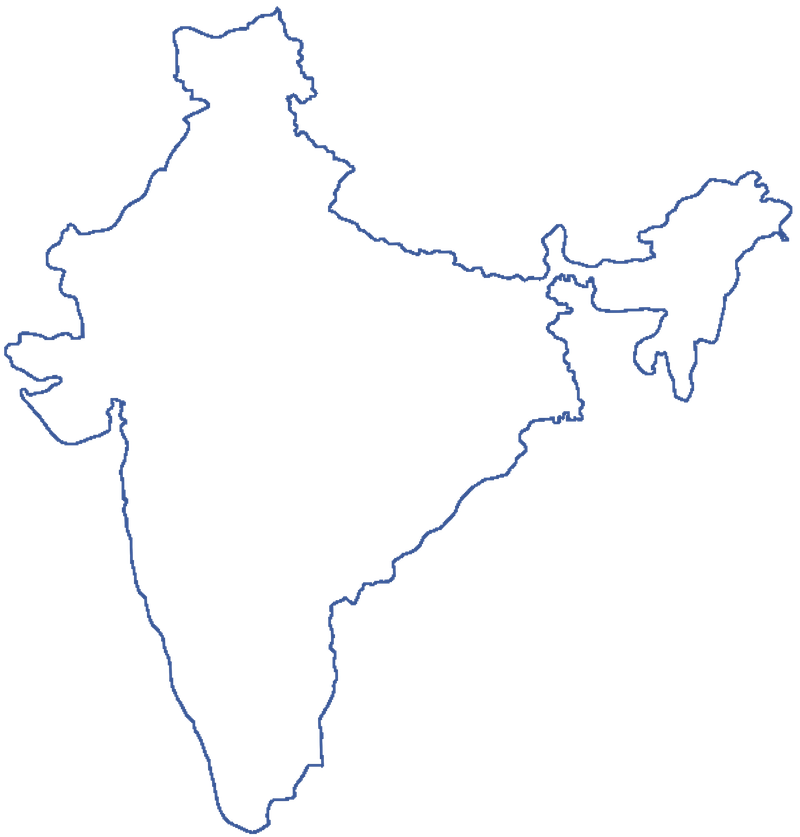
100,000 kbps

0.012 sec
per newsfeed downloadnewsfeed Overlap in Emerging Markets
From a study our team conducted of a high school network in India, if an Indian user were to connect with 10 randomly selected peers, they could expect to reduce their newsfeed data consumption by 24%. These results confirm that this potential reduction in data consumption would make a significant difference to Facebook Android users. Download the raw data from the study here.
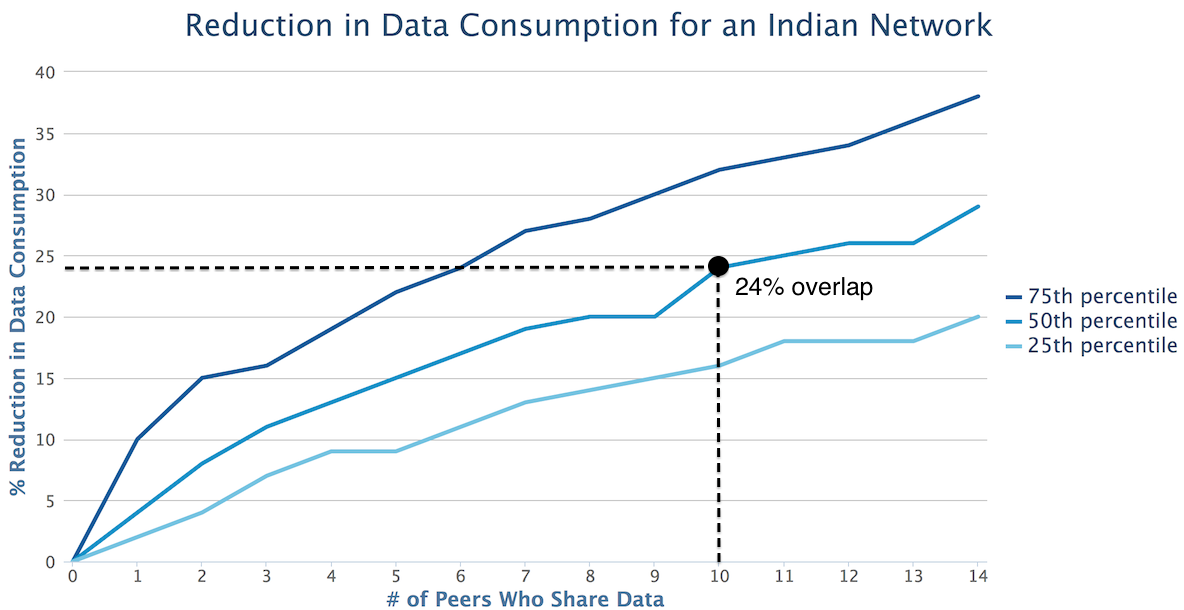
Offline Connectivity
Installation of the application without Internet
Indian markets are filled with shops which provide USB sticks full of software and media for people to purchase. Some of these shops even have subscription models so that people without Internet can stay up to date with new content. Users can go to these physical hotspot shops and download latest android or iPhone applications as they desire. Collaboration with existing hotspots or simply opening a chain of Facebook hotspot shops can incentive people to go back for updates.
Facebook could potentially patch the app via a peer to peer connection as well. If the peer the phone connects to has a later version of the app, it could provide an APK or a code patch to a phone with an older version.
Alternatively, the app could contain a failsafe switch that could deactivate Facebook on the vulnerable phone until the app updates. A peer could activate another peer’s failsafe switch, or the failsafe could activate automatically after a certain amount of time.
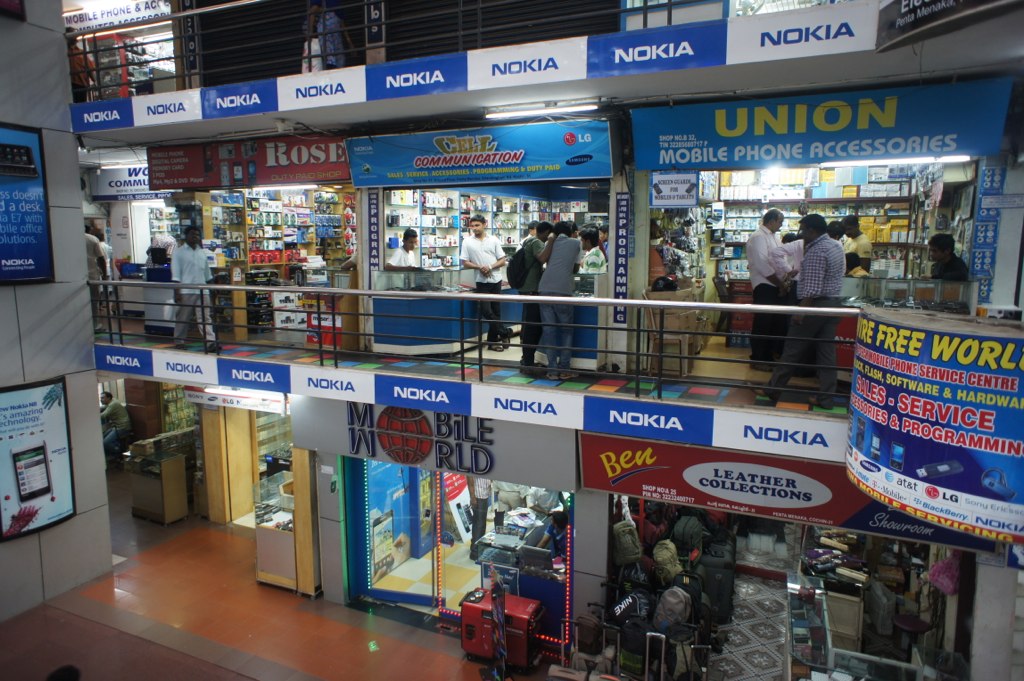
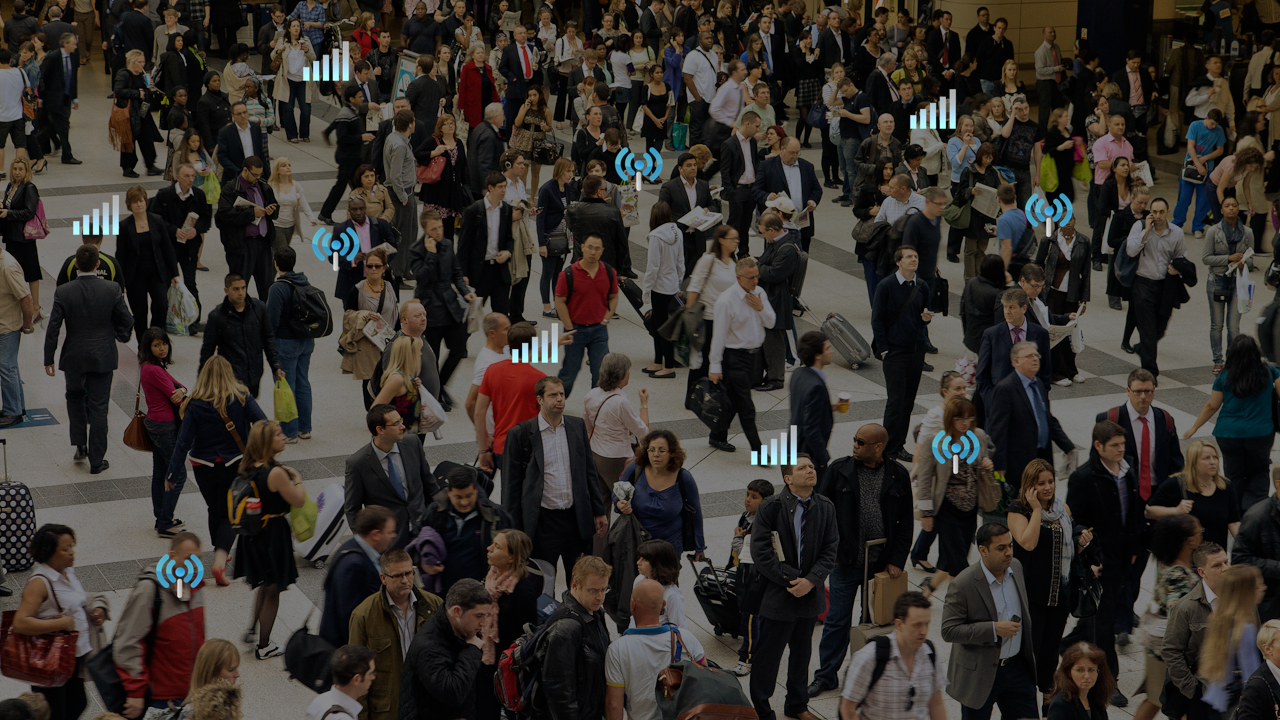
Interaction without Internet
In the physical vicinity of an offline user, many Facebook users exist who have access to Internet. So, an offline user can simply leverage one of the many Internet enabled phones surrounding it in two possible ways:
Effect on the overall network with many offline nodes
Routing through people with Internet can lead to an unbiased increase in certain users' mobile data. There can be two possible solutions to this:
